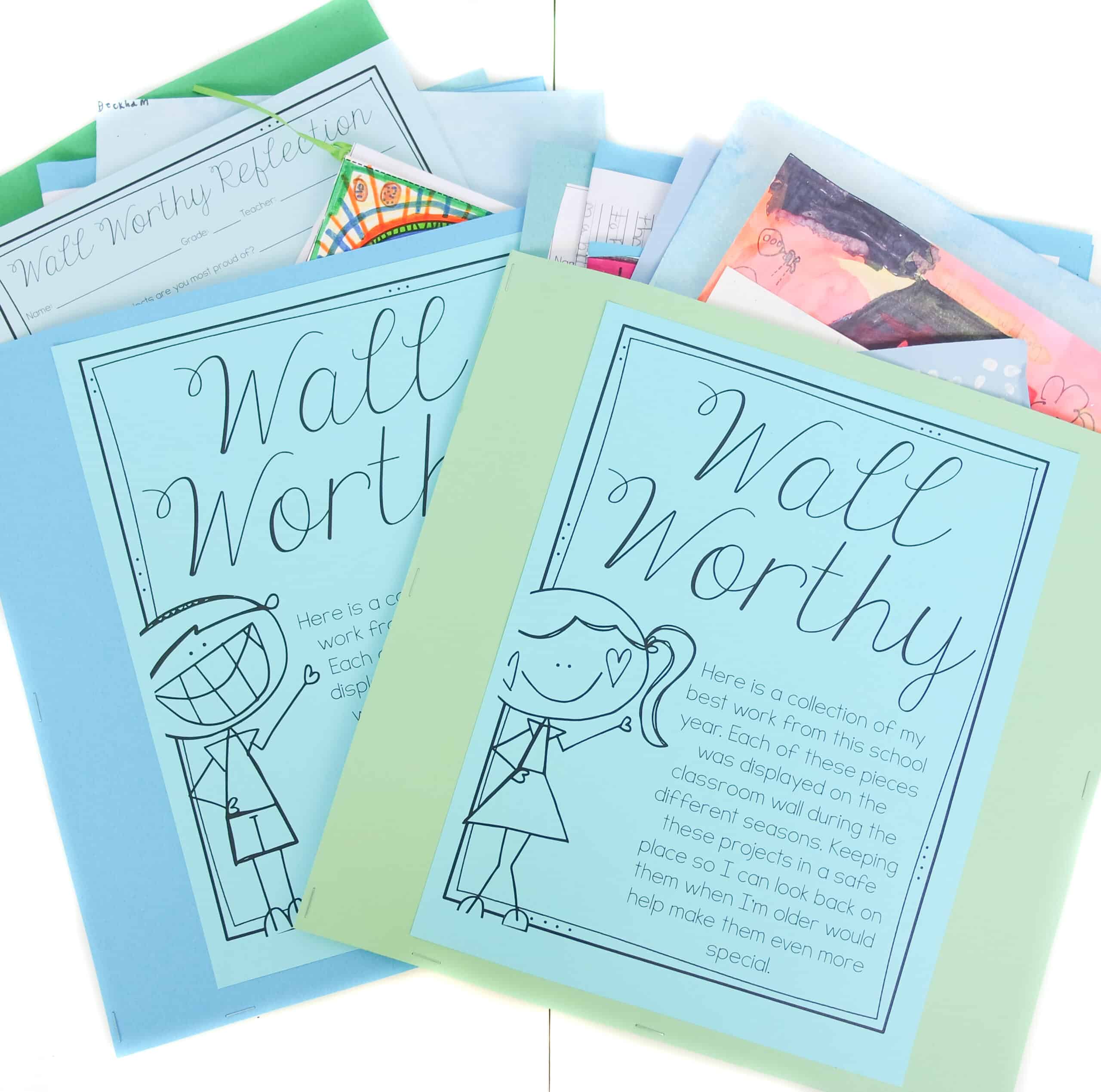
Whether you teach math small groups or want to meet one-on-one with students after you’ve released them to work independently, you’ve probably had that feeling of “small group overwhelm”. You know…that feeling when the students who are supposed to be working independently…are…not…independent.

Instead of focusing on meeting with students for follow-up instruction, you spend your time:
It all begins to feel a bit like a circus act that you really don’t want to perform again tomorrow. If this is happening in your classroom, know that you are not alone. But also know there are some tools you can use and some routines you can implement that turn that circus act into a well-oiled machine.
If questions bog you down during the small group and independent work rotations of your Math Workshop block, start implementing the Math Triad system.
A Math Triad is a carefully designed group of 3-4 students that work together to solve any problems that may arise during Math Workshop each day. Math Triads build student independence and resourcefulness rather than dependence on the teacher as the sole provider of answers.
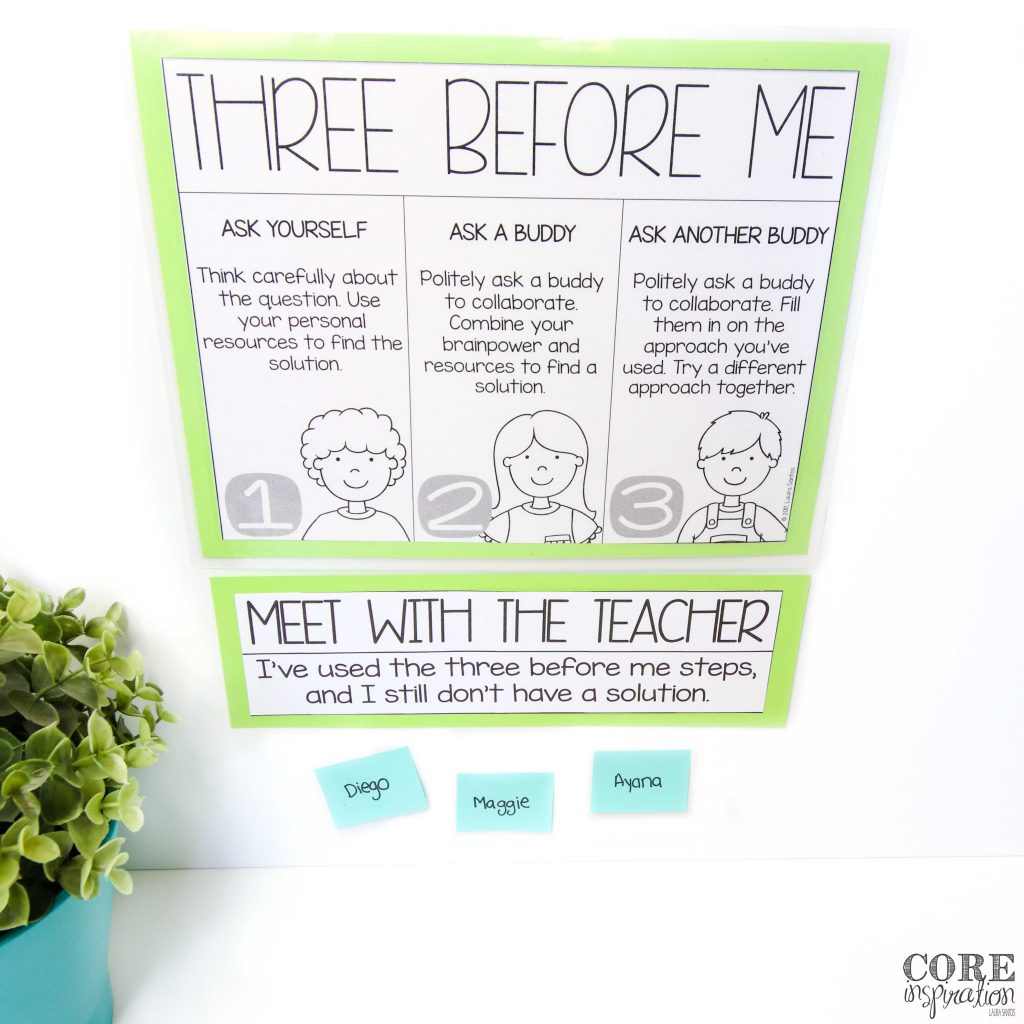
This approach to grouping is designed with the “three before me” routine in mind. With this routine, a student should ask three people to assist them before asking the teacher.
This reduces the number of interruptions you have when working through follow-up instruction one-on-one or during math small groups.
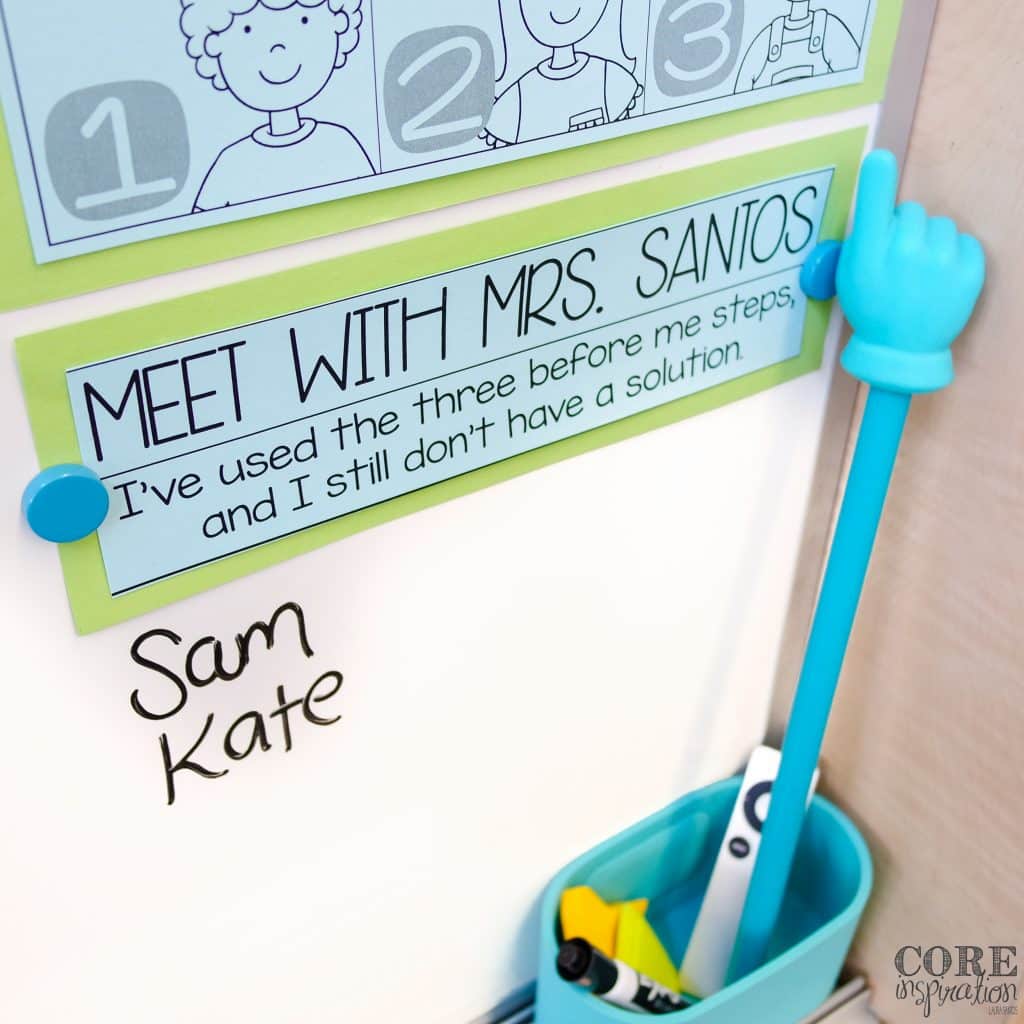
If you find yourself helping particular students dig through their desks to find their own personal supplies, introduce the classroom job of Desk Elves.
Your desk elves will help remind each student in the classroom to keep their desk or their workspace organized. I recommend assigning a desk elf for each table group or each seating zone in your classroom so they only have a few desks/cubbies to check each day.
These helpers will peek inside each student’s desk or cubby and touch nothing. If they see a desk that is organized, tidy, and free from any extra pencils, loose papers, knickknacks, or trash, they can move on to check the next desk.
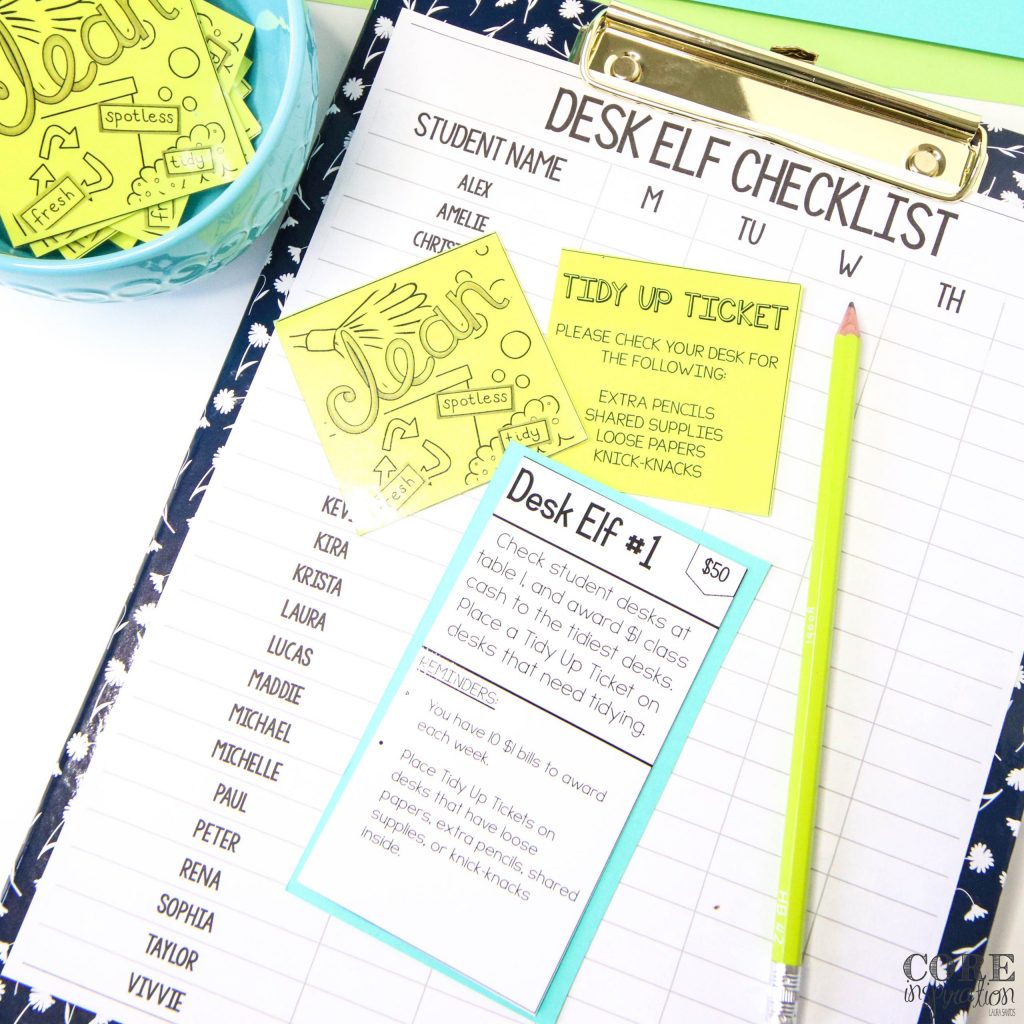
If they see any of the items listed (or any other items you prefer not to have inside desks or cubbies) they place a Tidy Up Ticket on top of the desk or on the edge of the cubby. This ticket is a polite way of reminding the owner of the desk or cubby that they need to take a moment to tidy up their personal learning space before heading home that day.
When you first start implementing this routine, students who receive Tidy-Up Tickets may need some scaffolding and support with organizing their desk space. In time, you will see their ability to organize personal space grow stronger and you will spend less time fishing through desks each day.
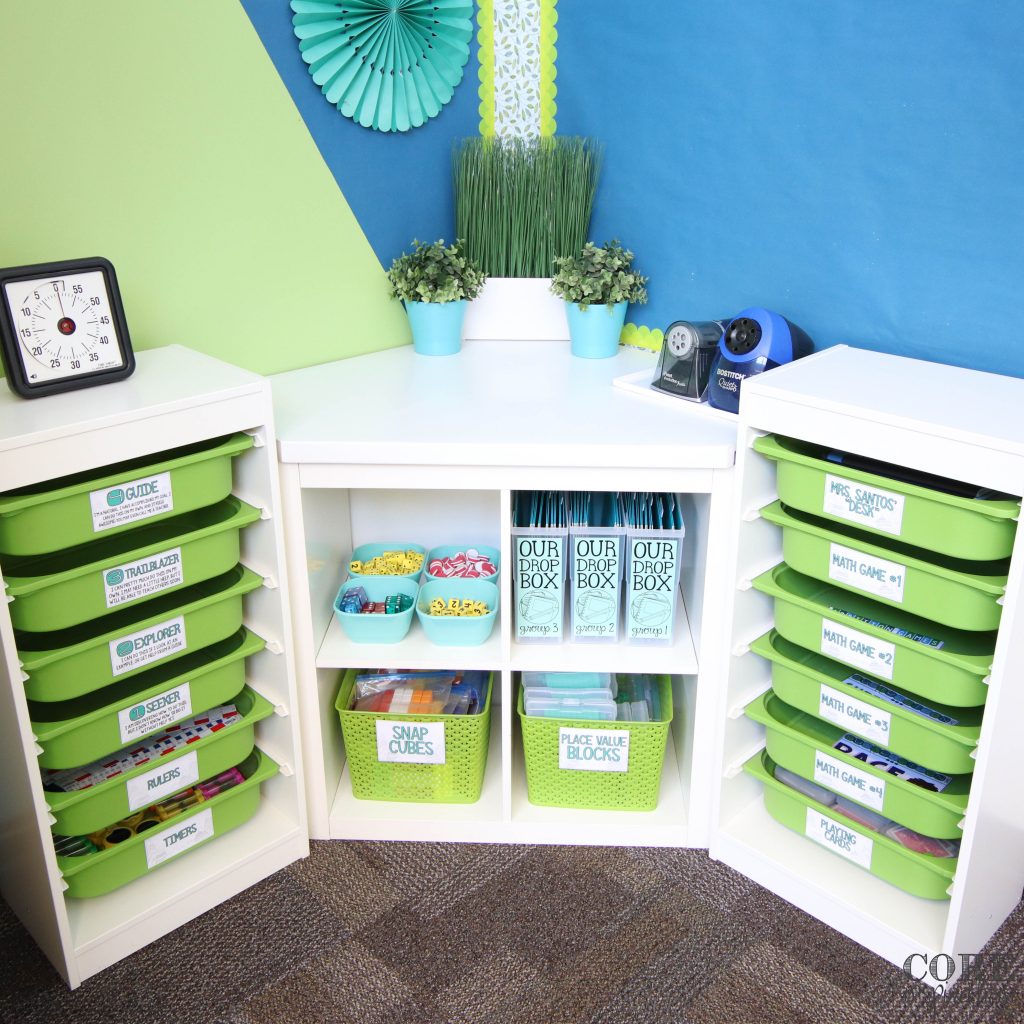
If you find yourself opening cabinets to find supplies that you didn’t realize your students may need for the math activities you set out, try setting up a designated math corner where all the manipulatives, games, and recording sheets your students will need during Math Workshop are all located and presented in a way that’s completely accessible to them.
With so many moving parts, Math Workshop sometimes feels a bit overwhelming for students. They need to know:
Some students have this list of things running through their minds when they really need to jump in a get started on their work. A tool that makes it so much easier for everyone in the room to get organized, get focused, and get working is a digital rotation board.
The carefully formatted timers in this digital PowerPoint tool will maximize student efficiency and create a calm yet productive Math Workshop environment in your classroom each day as it:
To read all about this powerful classroom management tool, hop on to this post.
By using these tools to improve math small groups and independent work time, you’ll not only reduce stress and frustration for yourself, but you’ll also help your students become more self-sufficient and confident in their math abilities. To make your teacher life easier than ever, grab these ready-to-use tools that make implementing these three routines seamless.

I’ve been an elementary teacher for ten years, and love sharing tips and resources that make differentiated learning more manageable for you. Thank you for visiting.
Learn More
Dropping by with weekly tips, classroom strategies, and free content created with you in mind.
Join me and other 2nd through 4th grade educators in the Teaching with Core Inspiration Facebook Group. This is a place to collaborate, ask questions, and learn how teachers like you are using Core Inspiration resources in their classrooms. Hope to see you there!
© 2024 Core Inspiration ∙ Website by KristenDoyle.co